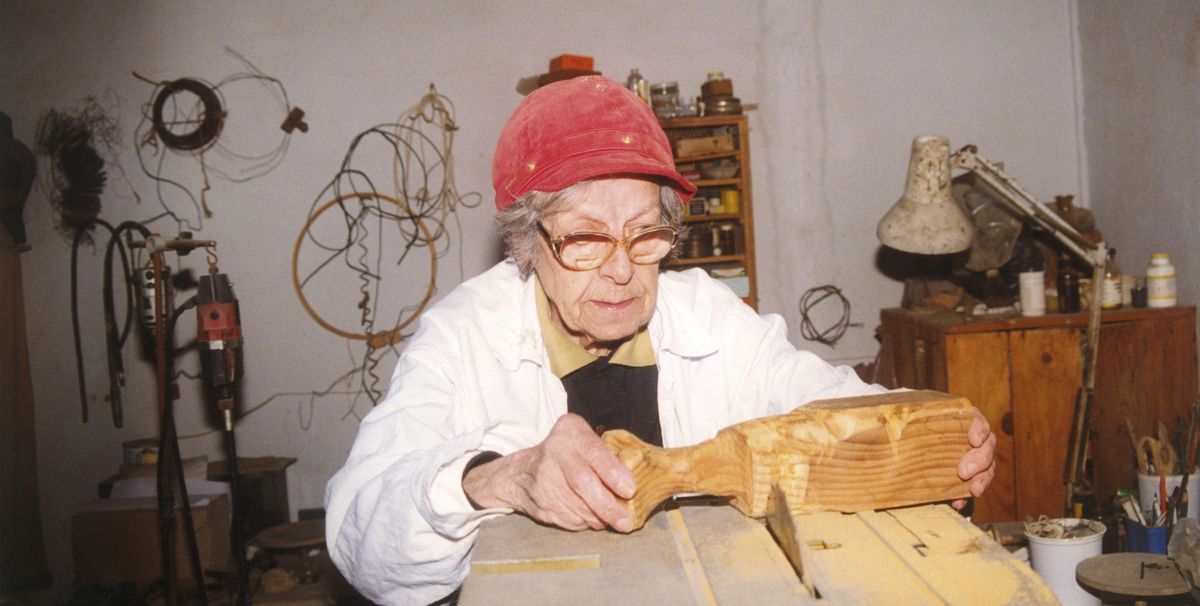The Beirut-born artist Saloua Raouda Choucair, an important figure in abstract art who rose to prominence in 2013 with a major show at Tate Modern in London, has died aged 100. A spokeswoman for the New York-based CRG Gallery, which represents Choucair, says that the artist was a pioneer inspired by the “pure lines” of Islamic art and architecture, embracing science, mathematics and poetry in her practice.
Choucair studied at the American University of Beirut in the mid-1940s and worked in the Paris studio of Fernand Léger in 1948, returning to Lebanon in the 1950s. “A critic once told me that my work has a European influence. No, it’s a universal experience in fact. What I experience, everyone in the world experiences,” Choucair said in a film on the Tate website. The rules she applied to her practice derived from Islam and Islamic geometric design, she added.
Choucair was relatively unknown outside the Middle East before the Tate show, which included more than 120 works dating from the late 1940s to the mid-1990s. Almost all of the pieces came directly from Choucair’s studio in Beirut. The former Tate curator Jessica Morgan, who co-organised the exhibition, told Artnews that she discovered Choucair after seeing one of her works in a Beirut gallery. “We went over to her studio, and her entire life’s work was there, basically, because she hadn’t really sold anything,” Morgan said.
The conservator Rachel Barker says in the Tate film that Choucair was “incredibly inventive with the materials that she used: different kinds of marble, polished wood, both fired clay, unfired clay, glazed clay and fibre glass”. The exhibition focused on innovations including her sculpture series known as “poems”. These works, made from individual pieces, stack together, mimicking the structure of Arabic poetry.


